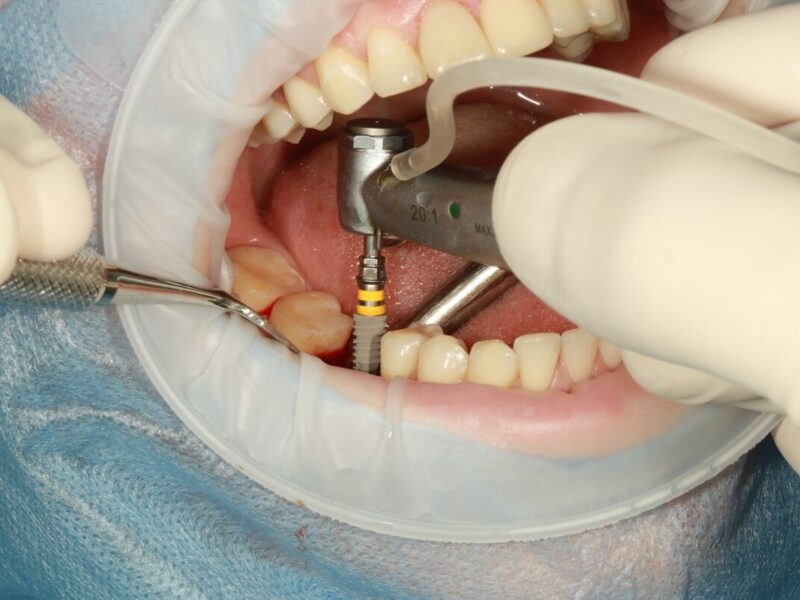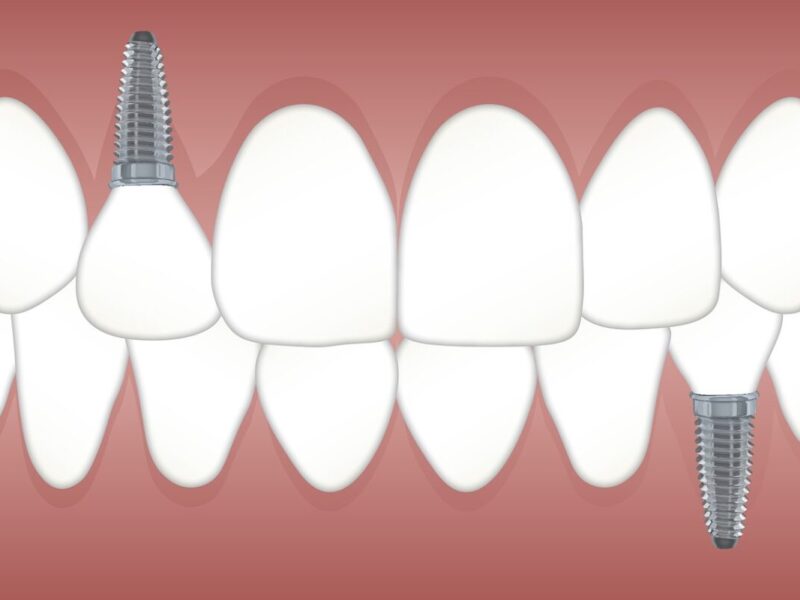Dental Implants Lifespan: What You Need to Know
Dental implants offer a reliable solution for replacing missing teeth, and understanding their lifespan can help you make informed decisions about your oral health. Many people wonder just how long dental implants last, which is a great question given their importance in everyday comfort and function.
The lifespan of dental implants can vary, influenced by factors such as oral hygiene, lifestyle, and the quality of the initial procedure. By keeping these aspects in mind, you can significantly enhance the longevity of your implants. Our goal here is to provide you with clear, useful information on what to expect from dental implants lifespan and how to care for them effectively.

Key Factors Influencing Dental Implants Lifespan
Several factors can affect how long your dental implants will last.
Material Quality Matters
The materials used in dental implants, such as titanium and zirconia, are key to their success. These metals are not only strong and durable but also mesh well with human tissues, minimizing the risk of rejection. A high-quality implant can withstand daily wear and tear, ensuring it remains a part of your smile for years to come.
The Surgeon’s Role
The experience and skill of your dental surgeon have a profound impact on how long your implants last. Precision in the implantation process ensures that the implant is positioned correctly and securely, reducing future complications. An expert surgeon can also provide tailored care advice based on your oral health profile, which is crucial for maintaining implant integrity over time.
The Role of Daily Oral Hygiene on Dental Implants Lifespan
Regular oral hygiene is non-negotiable to extend the life of your dental implants. Brushing twice a day, flossing, and using an antimicrobial mouthwash can prevent the buildup of bacteria that could lead to infections. These simple steps are your best defence against the issues that could shorten your dental implants’ lifespan, ensuring they remain functional and aesthetic.
Health Conditions and Implant Success
Overall health, especially conditions like diabetes and osteoporosis, may affect the stability of your dental implants. These health issues might compromise bone quality, which is critical for supporting implants. Managing these conditions with medical guidance is essential to maintain the health of your implants and ensure they last as long as possible.
Bone Quality and Volume
Adequate bone density is crucial for the success of dental implants. Without a strong bone foundation, implants cannot secure properly, potentially leading to failure. If your jawbone isn’t thick enough, bone grafting may be recommended to enhance its volume, providing a better base for implant placement and improving overall outcomes.
Lifestyle Choices and Their Impact
Your lifestyle plays a significant role in the health of your dental implants. Smoking and habitual teeth grinding, for example, can both jeopardize the healing process and weaken the bone structure supporting your implants. Making positive changes can greatly enhance the durability and stability of your implants.
Importance of Dental Check-Ups
Dental Exam and Clean in Brisbane are essential for maintaining the health of your dental implants. These visits allow your dentist to catch potential issues early and keep your implants and natural teeth in top condition. Timely professional care can prevent minor problems from becoming major, ensuring your implants serve you well for many years.
Gum Health and Stability
Healthy gums are vital for the success of dental implants. Gum disease can lead to bone loss around the implant site, threatening its stability. Regular cleaning and check-ups help keep your gums disease-free and your implants secure, reinforcing the foundation of your new smile.
Potential Complications That Could Shorten Dental Implants Lifespan
Dental implants are a fantastic long-term solution for replacing missing teeth, but like any medical procedure, there are potential complications that may affect their longevity. Being aware of these issues and knowing how to spot and address them early can help keep your implants in top shape for as long as possible.
- Gum Disease: This is one of the most common problems that can affect the health of your implants. Signs of gum disease include redness, swelling, and bleeding gums. If you notice any of these symptoms, it’s important to see your dentist right away. Regular cleanings and good oral hygiene can prevent gum disease from developing and protect your implants.
- Bone Loss: Implants rely on strong bones to hold them in place. If the bone around an implant starts to deteriorate, the implant may become loose. Early signs of bone loss include discomfort around the implant site and a feeling of looseness. Preventing bone loss involves maintaining good oral health and attending all scheduled check-ups with your dentist.
- Improper Implant Placement: If an implant isn’t placed correctly, it can lead to complications down the line, such as misalignment or undue stress on surrounding teeth and tissues. This is why choosing an experienced dental surgeon is crucial.
- Infection: An infection around the implant, also known as peri-implantitis, can lead to severe complications if not treated promptly. Symptoms include pain, unusual redness, and pus. Good oral hygiene and timely dental care are your best defences against infection.
- Mechanical Failures: Although rare, the implant itself can break or malfunction. This can happen due to material defects or excessive biting forces. Regular dental check-ups can help catch these issues early before they become serious.
Enhancing the Longevity of Your Dental Implants
Keeping your dental implants in great shape over the years isn’t just about good fortune; it’s about taking the right steps to care for them. Here are some straightforward tips to help you maintain your implants and ensure they last as long as possible.
- Regular Cleaning: Just like natural teeth, dental implants need to be cleaned regularly. Brush twice a day and floss at least once to remove plaque and prevent buildup that can lead to problems.
- Use the Right Tools: Soft-bristled toothbrushes, low-abrasive toothpaste, and floss designed for implants can help prevent damage to both the implants and the surrounding gums.
- Avoid Hard Foods: Hard and sticky foods can put excessive pressure on implants, risking damage. Stick to a diet that supports your oral health and minimizes risk to your implants.
- Stop Smoking: Smoking not only harms natural teeth, it’s also a major risk factor for implant failure. Quitting smoking can significantly improve the health of your mouth and the durability of your implants.
- Regular Dental Check-Ups: Visit your Brisbane dentist every six months for a check-up. These visits are crucial for catching any issues early and keeping your implants in optimal condition.
- Wear a Mouthguard if Needed: If you grind your teeth at night, consider getting a mouthguard. This can help protect your implants from the pressure and wear caused by grinding.
By following these simple tips, you can extend the life of your dental implants and enjoy a healthy, confident smile for years to come.

When to Consider Dental Implant Replacement
Dental implants are designed to be a long-lasting solution for missing teeth, but they may not last forever. Knowing when it might be time to replace them can help you maintain your oral health without interruption. Here’s how to recognize the signs that your implants need replacing and what to expect during the replacement process.
- Watch for Changes in Comfort and Fit: If your implant begins to feel uncomfortable or if you notice it doesn’t seem to fit as well as it used to, these could be signs that it’s time for a replacement. Changes in how the implant feels can indicate that it has become loose or that the surrounding bone is receding.
- Check for Visible Wear and Damage: Just like natural teeth, implants can wear down. If you notice cracks or chips in your implant, it’s important to see your dentist. These issues can weaken the implant and increase the risk of failure.
- Persistent Infections or Inflammation: If you experience ongoing problems such as inflammation, redness, or infection around an implant, it might be failing. Persistent issues like these shouldn’t be ignored as they can lead to more serious health problems.
- Regular Dental Assessments: Your dentist is your best resource for assessing the condition of your implants. Regular check-ups help catch potential problems early, sometimes before you’ve noticed anything is wrong.
The Replacement Process
- Consultation and Assessment: The first step in the replacement process is a thorough examination by your dentist to assess the condition of the implant and the surrounding bone.
- Removal of the Old Implant: If replacement is necessary, the old implant will be carefully removed. This procedure is typically straightforward but depends on the condition of your implant and jaw.
- Preparation for New Implant: Once the old implant is out, your dentist will prepare the site for the new implant. This might involve treatments to improve bone density or manage infections.
- Installing the New Implant: Installing the new implant is much like the original procedure. It involves placing the implant into the jawbone and allowing it to integrate into the bone over several months.
- Follow-Up Care: After your new implant is placed, proper care and regular check-ups are essential to ensure its longevity.





































